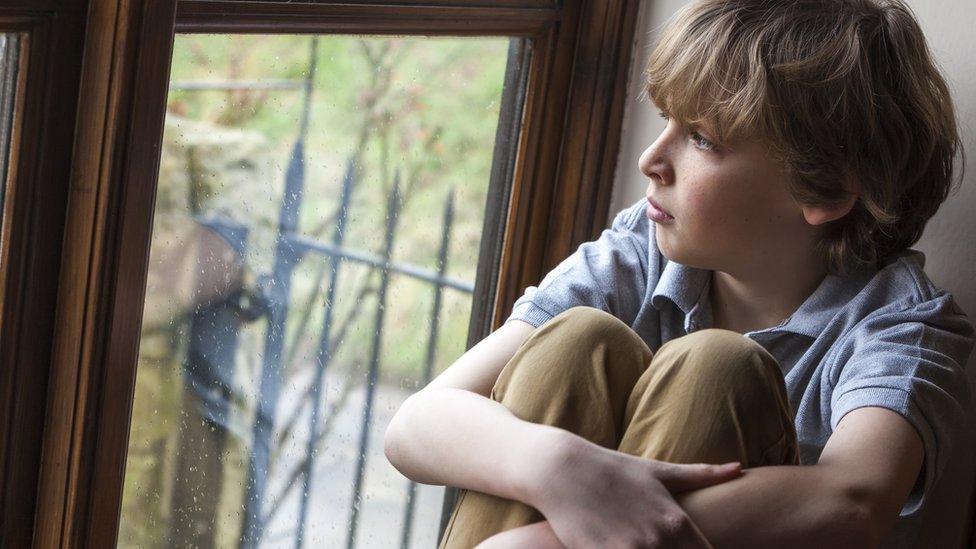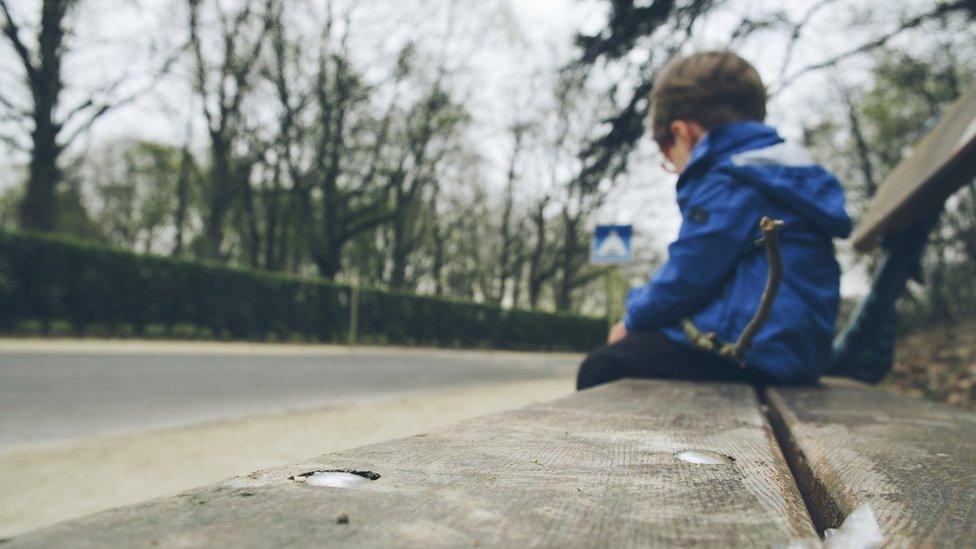Government adviser walks away from child protection plans
- Published

Plans to allow councils to opt out of key legal duties to vulnerable children have been labelled a "serious danger" by a former government adviser.
Prof Eileen Munro, whose social work review inspired the Children and Social Work Bill, said the opt-outs create "more dangers than benefits".
Under the bill, children's rights and checks on care could be set aside by councils trying new ways of working.
Ministers said it was wrong to say that children would be at risk as a result.
Instead they argue the Bill is a bold approach to removing red tape and allowing innovative ways of working.
The Bill, which is going through Parliament, has been described as "a bonfire of child protection rights", with many campaigners arguing that to allow councils to opt out of these long-standing duties would be risky and unnecessary.
If it becomes law, local authorities would be able to apply to the secretary of state to be exempted from one or more legal duties for a period of three years so it could try out new ways of working.
This could then be extended for a further three years.
Emailed opposition
Ministers have regularly cited Prof Munro as a supporter of what the government refers to as "innovation powers", referring to a statement issued last year in which she supported the plans.
However, the professor of social policy has now signalled her opposition to the Bill in an email to children's rights campaign group Article 39.
"I have reached the conclusion that the power to have exemption from primary and secondary legislation creates more dangers than the benefits it might produce," she said.
"While I understand and respect the motivation of the current government, there is a serious danger in having such wide-reaching powers in statute.
"Some future secretary of state might use them in ways that are completely contrary to the current intentions and consequently subvert the will of Parliament."
The legal duties affected by the Bill relate to nearly all the social care services children receive from local authorities, which have been laid down in numerous acts of Parliament.
These include statutory rights on child protection, family support, children's homes and fostering, support to care leavers and services for disabled children.
'Walked away'
About 50 organisations publicly oppose the proposed exemptions, including the British Association of Social Workers, the Care Leavers' Association, Women's Aid, Liberty and the National Association of People Abused in Childhood.
Article 39 director Carolyne Willow said: "The death knell has finally sounded for this appalling attack on children's law and parliamentary sovereignty.
"From the start, ministers claimed their dangerous plan to test out the removal of legal protection from vulnerable children and young people had the backing of Prof Munro. Well now she has walked away.

"Peers rejected these clauses, more than 50 organisations oppose them, social workers and others with long careers helping children reject them and more than 107,000 members of the public have signed a petition against them.
"Nobody wants our child protection and welfare system to lose its legal infrastructure.
"Ministers must do the decent thing for children and young people and withdraw these hated clauses."
A Department for Education spokeswoman said: "We know that over-regulation can get in the way of good social work practice, and the power to innovate will allow local authorities to test new approaches in a carefully controlled and monitored way.
"We have amended these clauses to strengthen the safeguards - to suggest the power to innovate would place children at risk is simply wrong."
- Published10 January 2017

- Published16 December 2016

- Published12 October 2016
